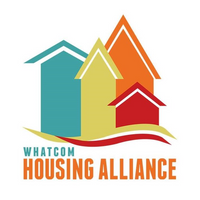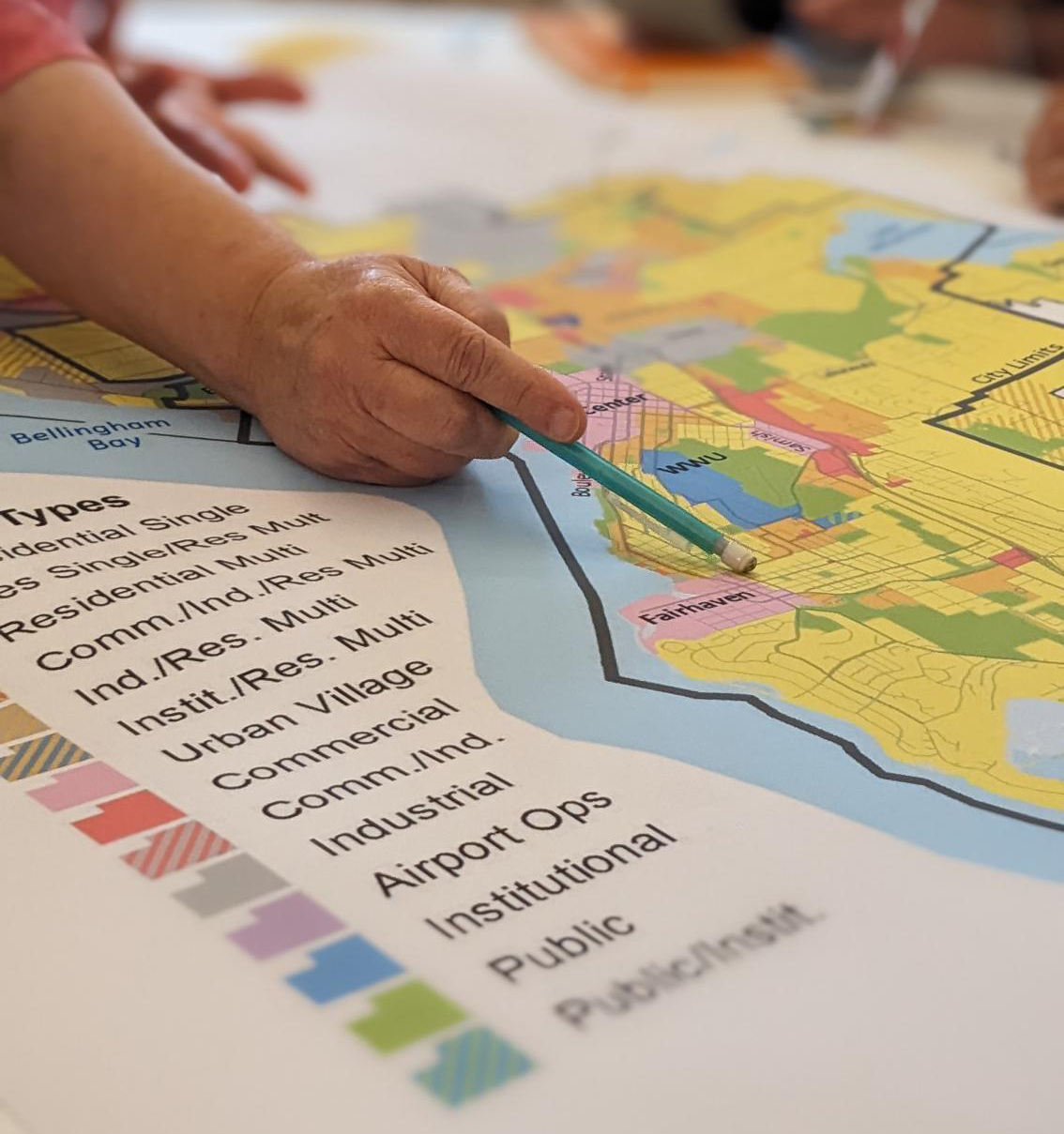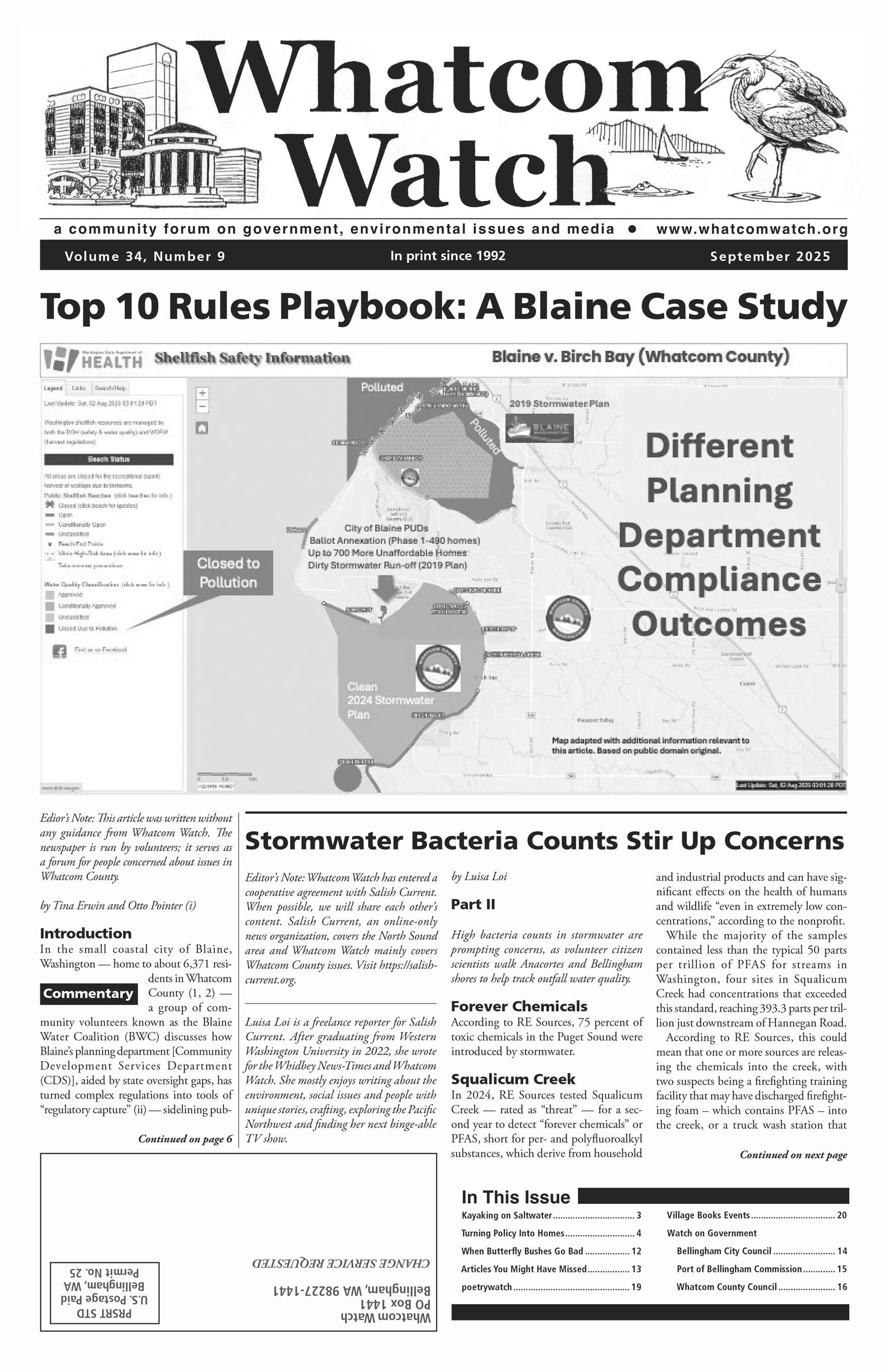Community Service Spotlight

by Scott Pelton
Housing is more than shelter — it’s the foundation of a healthy, connected community. It shapes how people build stability, access opportunities, and contribute to the places they call home. Yet across Whatcom County, the gap between what people need and what the housing system provides continues to grow.
Whether you’re a renter in Lynden facing rising costs, a senior in Point Roberts trying to age in place, a young professional searching for an affordable studio in Bellingham, or a family in Blaine seeking a home near work and school, the challenges are stark. Home prices and rents have soared. Construction has lagged behind demand. Navigating the systems meant to support new housing — whether as a builder, housing provider, or resident — can feel overwhelming.
For the past eight years, the Whatcom Housing Alliance (WHA) has been working to change that. WHA brings together builders, renters, developers, planners, policymakers, nonprofits, landlords, and neighbors, and more, to advance housing solutions that serve the entire community. We don’t build homes ourselves — but we work every day to make it easier for others to do so.
From Policy Reform to Local Impact
In recent years, Whatcom County has seen a wave of promising policy changes. At the state level, landmark legislation like House Bill 1110 and expanded Accessory Dwelling Unit (ADU) rules are reshaping Washington’s housing landscape — allowing for more diverse housing types in more neighborhoods. These reforms open the door to flexibility and creativity in how we grow, but converting that potential into actual homes depends on what happens at the local level.
WHA has played a central role in supporting local governments and community partners in that effort. In Blaine, Ferndale, and Bellingham, WHA led data-informed research to evaluate and improve policies. These programs offer incentives to developers who include affordable homes in their projects, helping cities align growth with community benefit. The City of Bellingham’s major MFTE reform in May 2025 — expanding eligibility and affordability requirements — was directly informed by WHA’s work.
Policy reform is necessary, but it’s only the beginning. It takes ongoing commitment and coordination to ensure these changes result in the homes our communities need.
Removing Barriers to Housing Supply
Whatcom County’s housing challenges are driven not just by demand, but also by outdated and overly complex systems. Even when housing is planned or approved, it often faces long delays, high costs, or neighborhood resistance. Local codes and permitting processes, while well intentioned, can inadvertently slow or block the production of needed housing.
These barriers affect people at every income level. Over half of the households in Whatcom County are renters, and many are severely cost-burdened. Landlords and property managers struggle to maintain aging buildings while adapting to evolving regulations. Builders face unclear permitting paths and high infrastructure costs. Cities are working hard, but often lack the capacity to align across departments or jurisdictions.
WHA helps connect the dots. We bring people to the table who don’t usually sit together — renters, developers, landlords, city staff — and create space to problem-solve. We advocate for smarter local policies, facilitate partnerships, and keep the focus on housing that serves the full range of Whatcom County residents.
Task Forces Taking Action in 2025
This year, WHA launched two new task forces to help drive that work forward.
- The Office of Healthy Housing (OHH) Task Force was created following the completion of WHA’s Office of Healthy Housing Study, conducted in partnership with Whatcom County and funded through the Washington State Department of Commerce. Completed in 2025, the study explored the rental housing landscape across the county — looking at how we can better support stability, communication, and outcomes for both renters and landlords.
The resulting task force brings together housing stakeholders, tenants, nonprofit advocates, and public agencies to co-create better resources, guide implementation of the study’s recommendations, and strengthen the rental system. - Also in 2025, WHA convened the Development Task Force, following overwhelming interest from local builders and city planners during our Middle Housing Training and Developer for a Day events. This task force includes developers, permitting officials, planners, and housing advocates from multiple jurisdictions. Together, they are working to identify actionable ways to reduce development bottlenecks and increase housing supply — particularly in areas where it’s currently hardest to build.
Both task forces reflect WHA’s approach: convene the right voices; focus on implementation; and commit to solutions that are collaborative, transparent, and grounded in local realities.

Years of Work on Parking Reform
Parking may not seem like a housing issue at first glance, but for years, outdated off-street parking requirements have added significant cost and complexity to new housing development. These rules often require more space for cars than for people, particularly in walkable or transit-rich neighborhoods. They drive up project costs, reduce the number of homes that can be built, and limit creative housing solutions like ADUs and infill.
WHA has been working on parking reform for several years — hosting workshops, presenting research, and engaging stakeholders across Whatcom County. That long-term effort culminated in a major success in early 2025, when the City of Bellingham adopted significant changes to its off -street parking code, eliminating or reducing minimum parking requirements in targeted areas.
These changes free up space and resources for housing — especially affordable and middle-income housing — and align local land-use policy with our region’s climate, mobility, and equity goals. WHA’s work on this issue continues to inform conversations in other communities across the county.
Creative Community Engagement
Housing reform doesn’t just happen in council chambers — it also grows from community awareness, imagination, and shared learning. WHA focuses strongly on public engagement to make housing issues accessible and actionable for everyone.
One of our most popular tools is the Annual Design Competition, which invites students, professionals, and community members to propose creative, buildable housing solutions. In 2023, the focus was ADUs. In 2024, the WHA turned to middle housing types. This year’s theme is Adaptive Reuse — reimagining underused buildings as homes. Submissions are open until October 1, with winners announced during Housing Week.
In addition, WHA organizes a wide array of events and forums that educate and activate the public:
- The Beyond the Front Door Speaker Series brings national and regional thought leaders to speak on housing, health, equity, and sustainability.
- Community Summits (held twice a year) gather residents, planners, elected officials, and advocates to set shared goals and advance local solutions.
- The Transportation & Housing Summit, held in 2024, explored how infrastructure and housing are interconnected — and how smarter design supports both.
- Our Bellingham Neighborhood Walking Tours take learning out of the classroom and into the street, showing real-life examples of housing design, zoning, and density.
These programs aren’t just informative — they build momentum. They foster a culture where housing conversations are inclusive, forward-thinking, and grounded in what matters most: people.
From Laws to Living Spaces
Every zoning reform, tax exemption, and housing bill is a step forward — but, without follow-through, they won’t change anything on the ground. Turning good policy into homes takes time, persistence, and collaboration.
WHA was formed eight years ago with that long-term vision in mind. Today, it stands as a leading example of what a committed, caring, and engaged community can accomplish together. The work isn’t finished — but it’s further along than it’s ever been.
If you care about the future of housing in Whatcom County — whether you’re a renter, homeowner, housing provider, or simply someone who wants their community to be inclusive and livable — we invite you to join us. Attend Housing Week. Join a task force. Explore our website at www.whatcomhousingalliance.org. Learn what’s possible, and help us build it.
Because when people come together around shared values, there’s no limit to what we can do.
__________________________________
Scott Pelton has lived in Bellingham for 28 years and manages the Whatcom Housing Alliance. He leads efforts to reform housing policy, educate the community, and build coalitions across sectors. His work focuses on increasing housing access and supply while promoting walkable, equitable neighborhoods throughout Whatcom County.





























